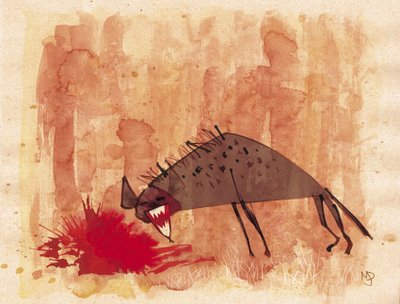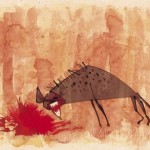Alfred Lord Tennyson wrote a poem called In Memoriam A.H.H. which reveals the tension between what Scripture says about God and what nature seems to reveal. The poem is famous for the statement that although Scripture says God is love, nature is “red in tooth and claw.”

Tennyson wants to know how we can get Scripture and Nature to agree on what God is like.
In Canto 54 he states that he is like a baby trying to find the truth, but all he can do is cry out wordlessly. How do you speak to God or to Nature if you are not sure either is listening?
So runs my dream, but what am I?
An infant crying in the night
An infant crying for the light
And with no language but a cry.
In Canto 56, Tennyson states that what he sees in Nature is not love and peace, but blood and death. Nature seems to scream against the teachings of Scripture that God is love.
Who trusted God was love indeed
And love Creation’s final law
Tho’ Nature, red in tooth and claw
With ravine, shriek’d against his creed.
Tennyson later raises doubt that nature can be matched at all with what we think we know about God. He seems to say that the two are incompatible.
Are God and Nature then at strife,
That Nature lends such evil dreams?
So careful of the type she seems,
So careless of the single life;That I, considering everywhere
Her secret meaning in her deeds,
And finding that of fifty seeds
She often brings but one to bear,I falter where I firmly trod,
And falling with my weight of cares
Upon the great world’s altar-stairs
That slope thro’ darkness up to God,I stretch lame hands of faith, and grope,
And gather dust and chaff, and call
To what I feel is Lord of all,
And faintly trust the larger hope.
At the end of the poem, however, Tennyson seems to admit that even when his faith fails and he thinks that maybe nature proves that God doesn’t exist, he still remembers the warm and gentle touch of God within him, and it allows him to realize that his Father is near.
If e’r when faith had fallen asleep,
I hear a voice ‘believe no more’
And heard an ever-breaking shore
That tumbled in the Godless deep;A warmth within the breast would melt
The freezing reason’s colder part,
And like a man in wrath the heart
Stood up and answer’d ‘I’d have felt.’No, like a child in doubt and fear:
But that blind clamour made me wise;
Then was I as a child that cries,
But, crying knows his father near.
Personally, I love this poem, and think it reflects honesty, openness, and a yearning for truth, wherever it is found, and it recognizes that there are no easy answers in life or in theology.




Leave a Comment or Question